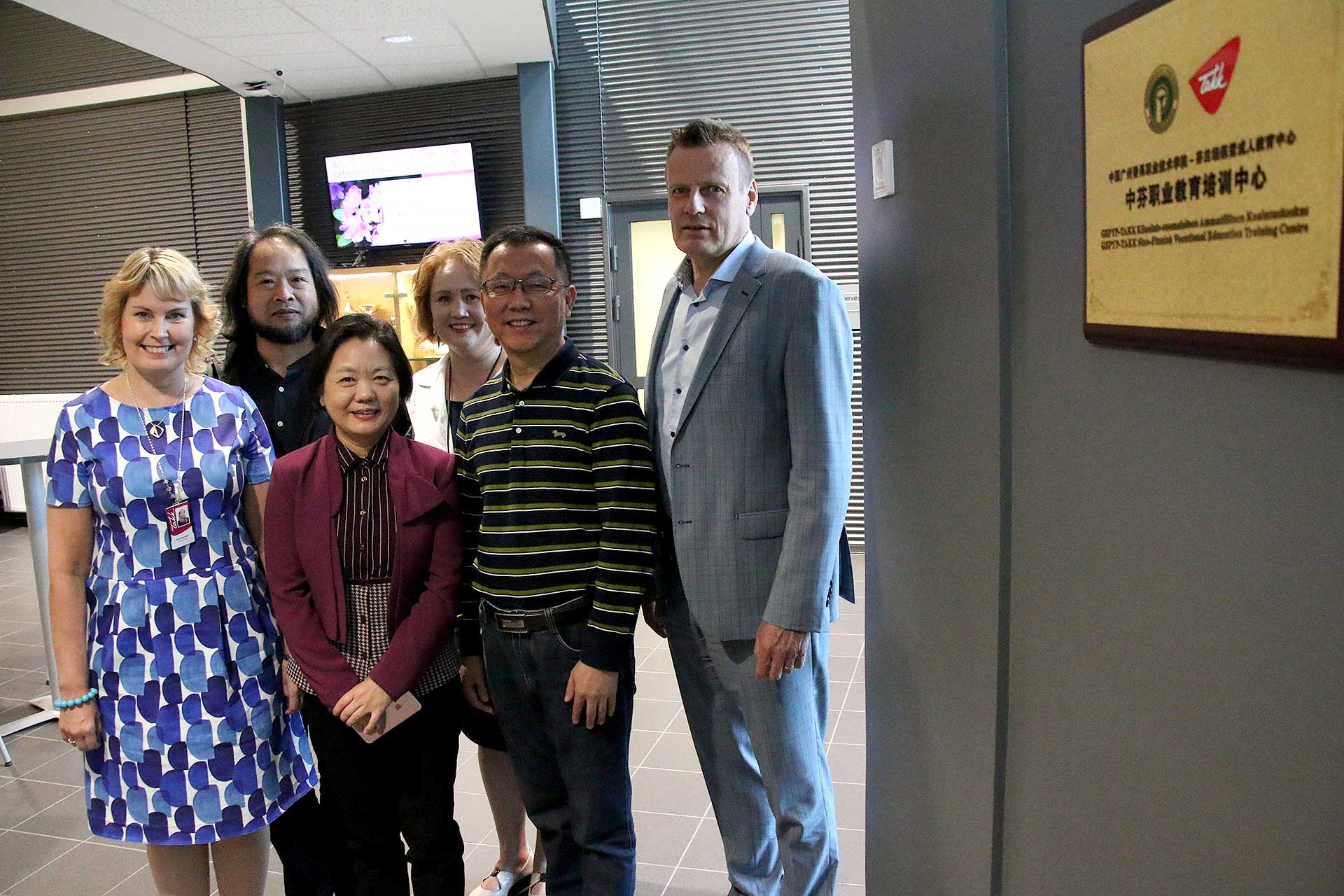A lot of the discussions regarding education focus on children and young adults, which is understandable, as most of the students are under 25 years old. However, adult education has a strong place in the Finnish education system as, according to Statistics Finland, almost half of the country’s working-age population took part in adult education in 2017. In adult education the importance of personal learning path is emphasised since adult students have very varying backgrounds and competence needs.
Vocational Education Aims for Competent Employees
After basic education in Finland a student in the age of 16 years usually makes a choice between general upper secondary education and vocational education. The first has been seen as a path to higher education and the second as a quick path to working life. Nowadays both give the opportunity to continue education in higher levels but there are still differences between the two. From vocational institutions students graduate to certain professions, the teaching is work-life oriented and includes planned, guided and assessed periods of learning in the workplaces, while the general upper secondary education provides the students with more extensive general knowledge. But education in either of the upper secondary level institutions isn’t meant only for the young people. Adults also have an opportunity to start or to return to education in this level.
One vocational education provider in Finland is Tampere Adult Education Centre (TAKK) Their International Advisor is Ulla Virtanen. She has worked at TAKK for more than 15 years and knows the field inside out. According to Virtanen the Finnish vocational education is comprehensive and of good quality. “From day one they are ready to work”, she describes the graduating students. The vocational training develops the student’s basic learning competences, such as linguistic and mathematical skills, but most importantly, their professional competence. Under the guidance of highly educated teachers, the students gain valuable know-how about the profession they are being trained for. Vocational students graduate with a profession and, at the same time, are qualified to apply for institutes of higher education.
The Importance of a Personal Learning Path in Vocational Adult Education
“Adult students usually have already formed a relationship with a working life”, answers Virtanen when asked about the differences between “regular” and adult students. Each student has their own experiences from education and working and thus has different aims regarding adult education. Indeed, TAKK offers qualifications and short courses for students in different life situations.
For people who don’t yet have a qualification or are looking to re-educate themselves, the institution offers full qualifications in various fields. Apprenticeship training is also possible. Or, if a person wants to finish a qualification they started earlier, they can complete the remaining study units needed for graduation. Further and specialised qualifications are meant for those who already have work experience from their professional sector. The training aims to deepen their competences in their specific working field.
A huge part of the adult students are simultaneously in working life which is why the scheduling of the teaching has to be more flexible. The study units require less time in classes but more independent and guided learning in work life. Also, in this regard, the Personal Competence Development Plan (PCDP) plays an important role. With the help of student counselor each student plans their studies to fit their personal situation. But before that all the prior learning is analysed, recognised and accredited.
Exporting Vocational Education from Finland
As education is free and mostly publicly run, the education system in Finland is quite heavily regulated by the government. Even though the providers of vocational education can be either private or public entities, the law is same for everyone. For instance, the exportation of vocational qualifications outside EU and EEA countries wasn’t possible until 2016 when the law changed.
At the moment, the law enables exportation of competence-based qualifications for all Vocational Education and Training (VET) organisations, and under the supervision of the Finnish National Agency for Education (EDUFI), the education providers are allowed to compromise in some of the requirements regarding e.g. the language of instruction and location of education. The aim of the pilot phase is to see how the law and regulations should be changed for the future.
According to Virtanen, exportation of vocational education in TAKK starts from the requests and negotiations carried out with an organisation located outside EU and EEA countries. The education service is organised considering the needs of the customer as a tailor-made entity. The customer can order either separate training modules or whole training programme aiming for a full qualification. The study modules exported so far have been in the sectors of quality management, machine technology and metal industry. It’s not possible to order training for single individuals since TAKK always works with bigger groups. However, the focus is always in the individual, in the needs of each student and to prepare them for working life.
Tampere Adult Education Centre is official partner of Polar Partners.
Written by Polar Partners’ Marketing intern Juliaana Kärkkäinen
